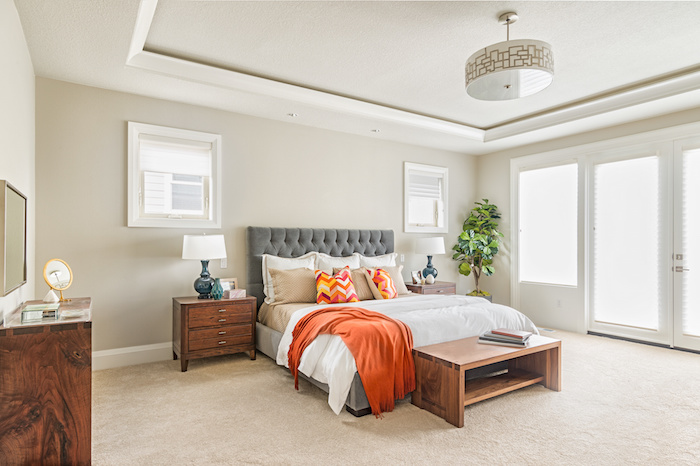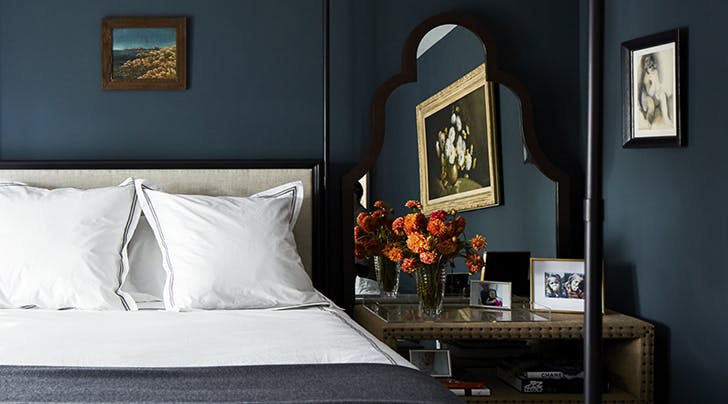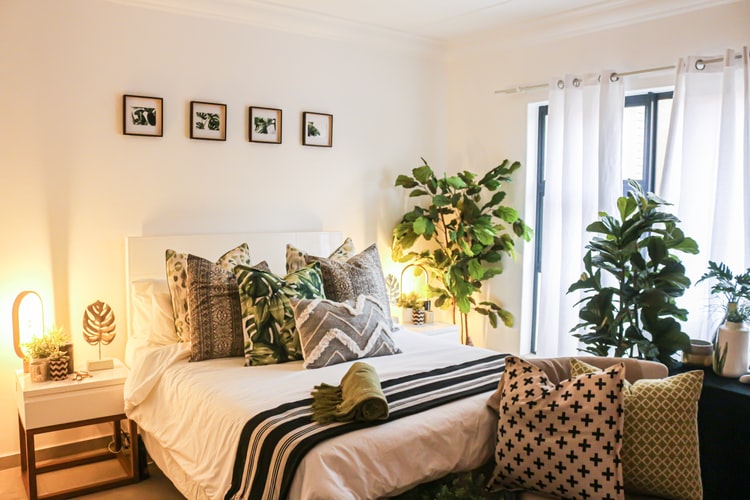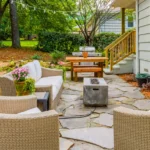When was the last time you enjoyed a good night’s sleep in your bedroom? If you’re taking too long to answer this question, it might be time to revamp your bedroom and turn it into a sleep haven.
Various factors, including the size of your bed and the color of your bedroom walls, could be affecting your peaceful slumber. Or you could just be bothered by the numerous ambient sounds peeping into your bedroom.
Here’s the thing – the last thing you want is to listen to loud music blaring from your neighbor’s apartment while you’re trying to doze off. Or maybe your house is situated on a busy street that receives plenty of traffic even at bedtime.
It could also be your partner watching their favorite true-crime documentary on the TV while you struggle to sleep. Irrespective of the source and type of sound, it’s always going to be unwelcome in your bedroom.
So, if you’ve been struggling to get a few hours of shut-eye every night, it’s time to consider soundproofing your bedroom. But whenever someone mentions soundproofing, you might already be imagining a complete overhaul of your existing living space.
But here’s the thing – unless you’re building a music studio at your home, soundproofing doesn’t have to be expensive. Simple changes, such as strategically placing a bookcase or adding a few area rugs, can go a long way to absorb ambient sounds and help you dive into a peaceful slumber.
Without further ado, let’s check out a few effective and affordable hacks to soundproof your bedroom.

1. Focus on the Door
Gaps and cracks in your bedroom door could be one of the major reasons why sounds from the outside world make their way into your sleeping quarters. To begin with, check and fix any gap underneath the door. Install a commercial-grade door sweep made of rubber to seal this gap.
Also, use weatherstripping to seal any gaps on the side of the door. If you’re willing to spend a few extra dollars, it might be a good idea to consider replacing the door. This is particularly crucial if your bedroom has a hollow-core door that’s stuffed with plastic or cardboard on the inside.
Replacing a low-quality hollow-core door with a solid wood door is one of the best investments you’ll make for your sleep. It’ll go a long way to block unwanted ambient sounds, be it your flatmate tiptoeing in the kitchen to quench their midnight cravings or your partner attending a work call with an overseas client in the wee hours of the morning.
2. Change the Flooring
The hardwood flooring in your bedroom might be going great with the overall rustic-themed decor. However, it also provides a surface to reflect any unwanted sound that enters your bedroom. This, in turn, could amplify any noise and prevent you from getting a good night’s sleep.
A simple solution is to replace hardwood or tiled floors with carpet flooring. Carpets can go a long way to absorb ambient sounds and are easier on your wallet as well. Also, they can instantly change the look and feel of your bedroom. The best part is that carpet flooring provides excellent insulation during the freezing cold winter months.
If you don’t have the budget to redo the flooring, a more economical alternative is to place a large area rug near the bed. It gives your bedroom a visual uplift, as well as makes it cozier and more comfortable.
3. Rearrange Your Furniture
This is the simplest and most inexpensive way of keeping unwanted noise at bay during bedtime. All you have to do is increase sound absorption by strategically rearranging the furniture in your bedroom. The key is to place heavy wooden furniture, such as a dresser or bookcase, near outside-facing walls.

These furniture items absorb noise seeping in from outside while letting you enjoy uninterrupted sleep. This is also a good time to change the position of your bed so that it isn’t placed against a wall that faces the hallway or outdoors.
4. Watch Out for Noise Reflection
Hard surfaces, such as the solid walls, wooden floors, and ceilings in your bedroom, reflect sound, thus amplifying the overall noise. That’s why it is a good idea to cover these surfaces to minimize reflection.
When it comes to floors, the easiest solution is to cover them with carpets or thick area rugs. Likewise, you can cover the ceiling with a shag rug or even foam clouds to increase sound absorption. As for the walls, you can choose from a wide array of options, including soundproofing wallpaper and rubber textile mats.
Soundproofing your bedroom doesn’t have to be cumbersome and expensive. Focus on key elements in the room that can be used to block or absorb unwanted noise using the aforementioned techniques. And that’s it! You’re all set to doze off in your sleeping quarters.






